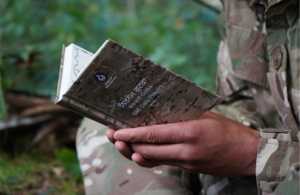PM sets out five-point economic action plan for the G20
- The Prime Minister arrives at the G20 Summit in Indonesia today (Monday) for talks with the leaders of the world’s biggest economies
- He will stress the need for coordinated global action to bring down the cost of living and end the war in Ukraine, which is devastating the global economy
- Summit will be the first encounter between a British PM and a Russian representative since the brutal invasion in February
The Prime Minister will call for coordinated global action to address international economic instability and the rising cost of living when he attends the G20 Summit this week. The meeting in Indonesia comes as countries around the world face huge economic difficulties, caused or exacerbated by the illegal invasion of Ukraine.
Every household on the planet is feeling the impact of Putin’s war. Global food prices have been driven up by his attempts to choke off the Ukrainian grain supply, energy bills have skyrocketed thanks to Russia turning off their gas taps and the World Bank predicts the economic aftershocks will ripple around the world for years to come.
This week’s meeting will be the first time a UK Prime Minister has met a representative of the Russian regime since Putin’s full-scale invasion in February. Russian Foreign Minister Lavrov is expected to attend the talks instead of Putin.
The Prime Minister will use the G20 as an opportunity to call out Putin’s barbarism and force Russia to confront the global suffering caused by this senseless campaign of violence.
The best and quickest way to alleviate these problems is for Putin to withdraw from Ukraine. But while this war continues, the world’s most powerful economies have a crucial role to play in addressing the desperate global economic situation.
G20 leaders first met during the global financial crisis in 2008, in recognition of the fact that our complex and international economic system cannot function without coordinated action from the most powerful economies. This year, the world is looking to the G20 again to ensure the stability of international markets and alleviate the burden on the world’s poorest people.
Ahead of this week’s summit the Prime Minister has set out a five-point economic action plan for leaders to address the current global instability, covering changes to the global energy market, international food supply and the world financial system.
This action will ensure a firm platform for the domestic measures the Chancellor will set out in this week’s Autumn Statement.
The Prime Minister said:
Later this week the Autumn Statement will set out how we will get this country on the right path, put public finances on a stable footing and get debt falling.
Creating a stable international system that protects the most vulnerable will be a core part of that work.
But addressing the biggest economic crisis in a decade will require a concerted effort by the world’s largest economies – these are not problems we can solve alone. At the G20, leaders need to step up to fix the weaknesses in the international economic system which Putin has exploited for years.
Under the five-point economic action plan, the Prime Minister will call on fellow leaders to:
Direct government support to where it’s most needed. Using government support effectively to prioritise the most vulnerable, both in our own countries and internationally.
End the weaponisation of food production and distribution. Taking immediate action to support the global food trade to reduce the cost of living for all and save the lives of those at risk of starvation. This includes calling for the Black Sea Grain Initiative to be renewed on 19th November and a G20-wide commitment never to weaponise food production and distribution.
Strengthen our energy security and reduce energy dependence on Russia. We must bring an end Russia’s stranglehold over international energy prices. As part of these efforts we will work with partners to unlock the investment needed to accelerate the green transition – the best way of protecting ourselves from those who have perpetually used hydrocarbons to bully and coerce.
Open up global trade. This includes by advancing bilateral free trade agreements and through reform of the World Trade Organization. We need a WTO fit to release the opportunities of the 21st century while tackling the manipulation of global markets by malign actors.
Providing honest, reliable finance to help developing countries grow sustainably. Ensuring that the international financial system has the firepower needed to help developing countries grow without becoming dependent on their lenders. This includes rapid action to help poor countries better manage their debt burdens and providing an alternative to developing countries borrowing from exploitative sources.
These efforts form part of the Prime Minister’s drive to place economic stability and confidence at the heart of this government’s agenda. That means being a constructive and reliable member to the global economy, and using our influence to create a stronger international economic system.
